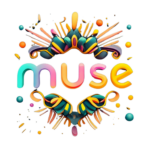In the ever-evolving landscape of business, the term “Digital Marketing Transformation” has become more than just a buzzword; it’s a strategic imperative for organizations seeking to stay competitive in the digital age. As consumers increasingly turn to online channels for information, entertainment, and commerce, businesses must adapt their marketing strategies to meet these changing dynamics.
Digital Marketing Transformation is a holistic approach to reshaping a company’s marketing strategy, processes, and technologies to leverage the full potential of digital channels. It goes beyond merely having a website or using social media; it involves a fundamental shift in how businesses connect with their audience, deliver value, and drive growth. The core elements of digital marketing transformation include:
Data-Driven Decision-Making:
Utilizing data analytics to gain insights into customer behavior.
Implementing tools for real-time tracking and analysis of marketing performance.
Customer-Centric Approach:
Building personalized and engaging customer experiences.
Understanding and responding to customer needs across various touchpoints.
Omni-Channel Marketing:
Creating seamless experiences across multiple digital channels
Ensuring consistent messaging and branding across all touchpoints.
Content Strategy and Marketing Automation:
Developing compelling and relevant content for different stages of the customer journey.
Implementing marketing automation tools to streamline and optimize workflows.
Technology Integration:
Adopting and integrating advanced marketing technologies such as AI, machine learning, and blockchain.
Ensuring compatibility and interoperability of different marketing tools.
Challenges in Digital Marketing Transformation:
While the benefits of digital marketing transformation are evident, organizations often face challenges in the process:
Cultural Resistance:
Resistance to change from employees accustomed to traditional marketing methods.
Overcoming siloed departmental mindsets to foster collaboration.
Data Security and Privacy Concerns:
Ensuring compliance with data protection regulations.
Safeguarding customer data from breaches.
Talent Gap:
Recruiting and retaining skilled professionals with expertise in digital marketing.
Providing ongoing training to keep teams updated on industry trends and tools.
Integration Issues:
Overcoming challenges in integrating new technologies with existing systems.
Ensuring a smooth transition without disruptions to ongoing operations.
Benefits of Digital Marketing Transformation
Building meaningful relationships with customers through personalized interactions.
Leveraging customer data to anticipate needs and preferences.
Improved Marketing ROI:
Optimizing marketing spending through data-driven decision-making.
Demonstrating measurable results through analytics and performance tracking.
Agility and Adaptability:
Responding quickly to market changes and trends.
Iterative testing and optimization of marketing strategies for continuous improvement.
Global Reach:
Expanding market reach beyond geographical constraints.
Reaching diverse audiences through targeted digital campaigns.
Conclusion
Digital marketing transformation is not a one-time project but an ongoing journey of adaptation and innovation. Embracing the opportunities presented by the digital landscape allows businesses to thrive in a dynamic and competitive environment. By addressing challenges, fostering a culture of innovation, and staying ahead of technological advancements, organizations can position themselves for sustained success in the digital age. As the saying goes, “The only constant in digital marketing is change,” and those who navigate this change with agility and strategy will emerge as leaders in their industries.

